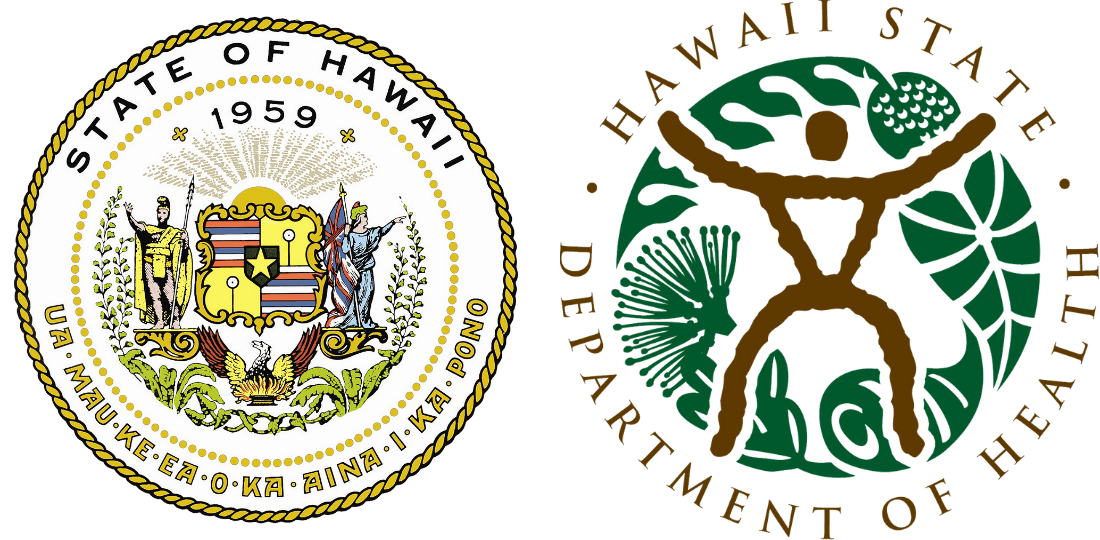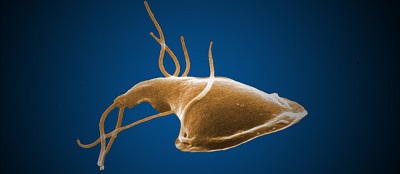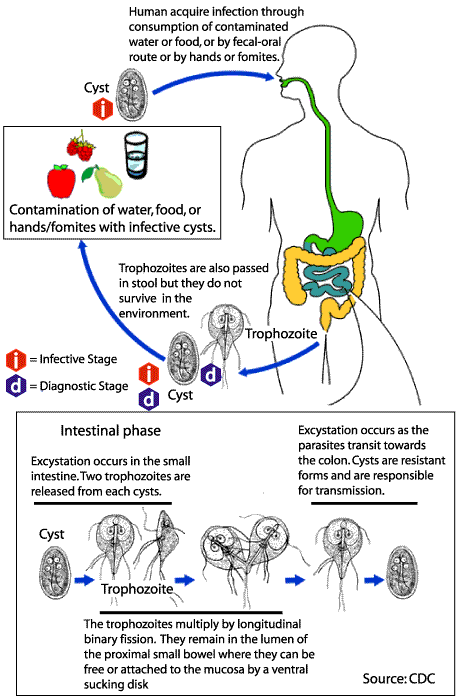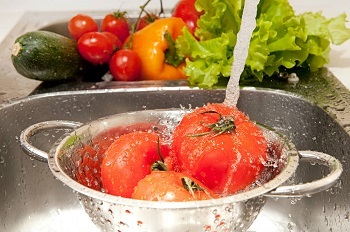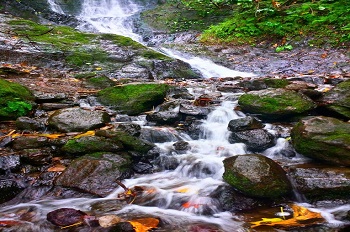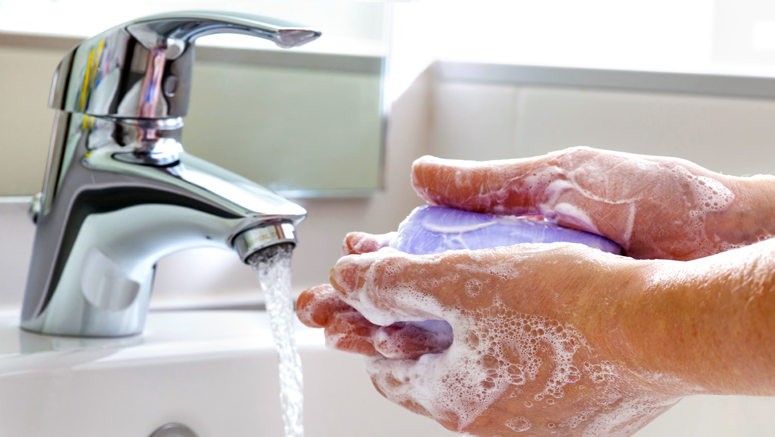Giardiasis
Report a Case
Disease Reporting Line:
(808) 586-4586
About This Disease
Giardiasis is an intestinal illness caused by the parasite, Giardia lamblia. The parasite can be found in the stools of infected humans and animals (dogs, cats, beavers, rodents). People who drink untreated surface water from ponds, lakes and streams have a higher risk of getting giardiasis. Travelers and persons in institutional settings or day care centers where children are not toilet-trained also have a higher risk of getting giardiasis.
Signs and Symptoms
Symptoms of giardiasis normally begin 1 to 3 weeks after becoming infected. In otherwise healthy individuals, symptoms may last 2 to 6 weeks, occasionally longer. The symptoms of giardiasis include frequent, loose, pale, greasy stools (often foul smelling), with gas, bloating, cramps, fatigue, weight loss, nausea, vomiting, and diarrhea. Fever is usually not present, and many people infected with Giardia may have no symptoms at all.
Diagnosis
Giardiasis is diagnosed through a laboratory test which finds the organism, antigen, or DNA in stool, intestinal fluid, tissue samples, biopsy specimens, or other biological samples. Usually three stool samples collected more than 24 hours apart look for ova and parasites.
Treatment
A doctor can prescribe medicine to treat giardiasis. Often a repeat course of the same medication will be needed to get rid of the infection. Some individuals may get better on their own without treatment. The most common medications used are metronidazole, tinidazole, or nitazoxanide. If you’re asymptomatic, you do not need treatment unless you are likely to spread the disease.
Risk in Hawaii
Giardia is found in Hawaii, mainly on Oahu. There are also cases reported from those who traveled outside of Hawaii.
Prevention
Reduce your exposure to contaminated food or water.
- Do not drink untreated water directly from ponds, lakes, and streams. If you are not sure about the safety of drinking water, you should drink bottled water or boil tap water for at least one minute. If boiling is not possible, use a filter that has been tested and rated by National Safety Foundation (NSF) Standard 53 or NSF Standard 58 for cyst and oocyst reduction; filtered tap water will need additional treatment to kill or weaken bacteria and viruses. Chemically treating water with bleach or iodine tablets may not work as well as boiling or filtering.
- Wash your hands carefully after using the toilet, and especially before making or eating food.
- Wash your hands thoroughly after changing diapers and after cleaning up a pet’s waste. After diaper changing, wash the child’s hands also.
- Keep children away from animal wastes.
